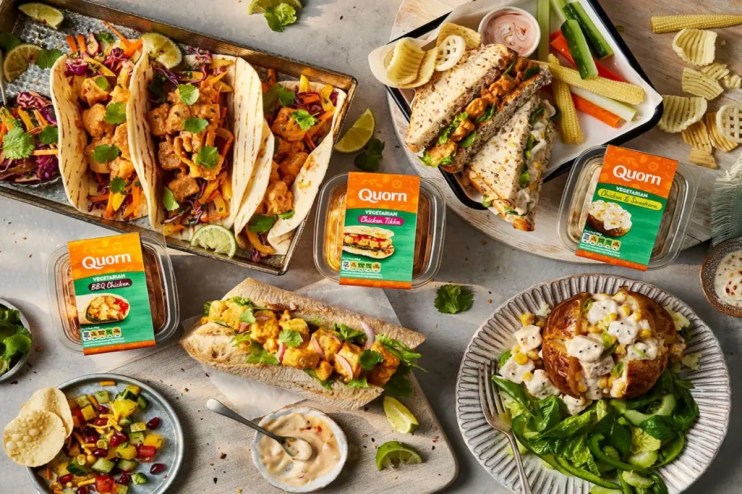Quorn: Meat-free food brand loses more than £60m as supermarket sales slashed

The company behind meat-free food brand Quorn lost more than £60m during its latest financial year as its sales in UK and US supermarkets continued to decline.
The North Yorkshire-headquartered Marlow Foods has posted a pre-tax loss of £63.4m for 2023, having also made a loss of £15.4m in 2022.
The last time the Quorn maker reported a pre-tax profit was the £7.3m it achieved in 2021.
Newly-filed accounts with Companies House also show that the firm’s revenue fell from £220m to £204.9m over the same 12 months.
Marlow Foods, which is ultimately owned by Philippines-based Monde Nissin, makes and sells Quorn-branded products in the UK, Europe, Australia, South East Asia and the US as well as Cauldron-branded products in the UK.
The company said its revenue fell “largely as a result of the decline in the meat-free category in the UK and US markets driven by the cost-of-living crisis” which was partially offset by continued growth in food service.
Quorn’s retail revenue fell from £186.7m to £170.7m in the year but its food service sales rose from £26.6m to £27.9m. However, its quick service restaurants revenue was cut from £6.7m to £6m.
Its UK revenue decreased from £172.8m to £161.1m but grew from £26.8m to £28.7m in Europe. However, its sales in the rest of the world dipped from £20.3m to £15m.
During the year the average number of people employed by Marlow Foods also fell from 934 to 874.
Quorn maker looking to return to growth
A statement signed off by the board said: “Inflationary pressures had a major impact during 2023 with the prices of energy, commodities and other inputs rising significantly above historic levels.
“These pressures eased through the year but costs remained elevated.
“The group took steps to minimise the impact of this inflation through competitive sourcing, selective forward purchasing and internal efficiency initiatives as well as through increasing the selling prices of some of its products.
“However, the group seeks to protect its customers and consumers from increased costs and inflationary input cost increases were only partially recovered through selling price increases.”
On its outlook, Quorn added: “The group continues to plan for a return to sales growth and profitable trading, taking into account known macro-economic and geo-political risks.”
